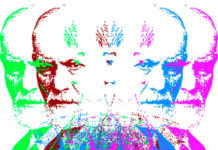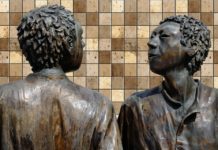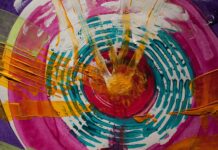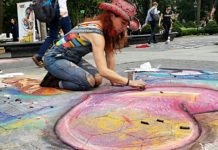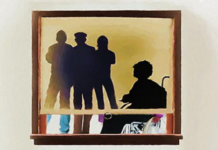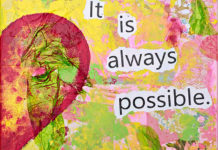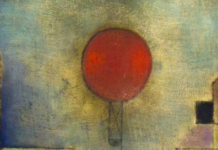Researchers Identify 27 Categories of Emotion
A new study finds that emotions may be represented by 27 categories, with each category relating to others in a more complex and continuous fashion than previously understood.
Psychodynamic Therapy Revealed to be as Efficacious as Cognitive Behavioral Therapy
Meta-analytic study finds that psychodynamic therapy outcomes are equivalent to those of CBT and other empirically supported treatments.
How Relational Therapy Enhances a Sense of Self and Relationships
Relational therapy can be informed by the intersubjective dynamics observed in early childhood to facilitate the development of healthy relational patterns and a strong sense of self.
Agency and Activism as Protective Factors for Children in the Gaza Strip
Researchers recommend a ‘politically-informed focus', including activism, when assessing children and designing interventions in areas of chronic political violence.
New Traction for Art Therapy as a Treatment for Depression
New study investigates the acceptability of a phenomenologically informed, manual-based art therapy for clients diagnosed with moderate to severe depression.
Study Finds Heavy Metal Music Beneficial to Mental Health
A new study highlights the role heavy metal music plays in the mental health of adolescents facing adversity.
Combining Art Therapy and Mindfulness for Refugees
A new article, published in The Arts in Psychotherapy, describes the ways art therapy and mindfulness have benefitted refugees and asylum seekers in Hong Kong.
Healing from Psychiatry: A Community Art Book
I began reaching out to other psychiatric survivors, asking whether they would like to have their art featured in a book, and the response I received was amazing. People openly shared not only their art but their personal stories, their feelings, and their painful journeys into, through, and out of psychiatry.
From Surviving to Thriving: Unleashing Creativity
There were days that I’d wake up and all I could do was cry for no particular reason, just another miserable day of withdrawal. However, the idea of taking photos would get me out of the house. Especially on those days, the absolutely only thing that would get me to move at all was the idea of taking photos. One particular day, I was just crying, crying, crying, and as soon as I got to a beautiful spot that I loved, I stopped crying, took photos, and felt at peace. I even found that the days I felt the worst were the days I took the best photos.
The Bipolar Artist: A Lifelong Sentence to Bear
I was told that I had only two choices: Do not have children, or take lithium while I was pregnant—the drug that posed the least amount of birth defects, and the very medication that had killed the painter in me years ago. I refused both options and set out on my own, and luckily found a willing psychiatrist to help me taper off the meds.
Study Explores Māori Community’s Multifaceted Understanding of “Psychosis”
A new study explores how “psychosis” and “schizophrenia” are viewed within the Māori community in New Zealand.
Dual-award Winning Play and Film About Human Beings, not Psychopathology
[M]y play, SHADES, and my film, "Is Anybody Listening?" are about people who have experienced major troubles, even trauma or other tragedies, who have dark secrets that torment them, but who use connection, love, humor, and creativity to come through, even to heal. And no one in the play or the film is pathologized.
Music Therapy Interventions Reduce Depression Symptoms in Dementia
Therapists can use music to meet the emotional and social needs of individuals with dementia.
Large German Anti-Stigma Campaign Shows Little Effect on Attitudes
“Overall, this study showed that the information and awareness campaign had almost no significant effects on the general public's attitudes toward people affected by either schizophrenia or depression,” the researchers, led by German medical sociologist Anna Makowski, wrote. “One could assume that deeply rooted convictions cannot be modified by rather time-limited and general activities targeted at the public.”
Philosophers Question the Separation of Medicine and Culture
Radically questioning the distinction between the objectivity of science and the subjectivity of culture can give way to powerful biocultural methods of healing.
Inner Fire: Healing and Recovery Without Meds
For five years, I and others worked to create a residential healing community in Brookline, Vermont, where people could recover from debilitating and traumatic life experiences, which often lead to addiction and mental health challenges, without the use of psychotropic medications. We welcomed our first six seekers to a yearlong, therapeutic and farm-based, day program last September, and we now can report on what we have learned during this time.
New Findings Suggest Masculinity is a Risk Factor for Suicidal Thinking
Men who report being self-reliant may be at greater risk of suicidal thinking.
Study Finds Music Therapy May Be Effective in Clinical Practice
In a new study published in The Journal of Child Psychology and Psychiatry, Professor Sam Porter and co-authors, present the results of a music...
Why “Stabilizing” People is Entirely the Wrong Idea
If human beings were meant to be entirely stable entities, then “stabilizing” them would be an entirely good thing; a target for mental health treatment that all could agree on. But it’s way more complex than that: healthy humans are constantly moving and changing. They have a complex mix of stability and instability that is hard to pin down. All this relates to one of my favorite subjects, the intersection of creativity and madness.
Envisioning Psychiatric Drug Freedom
Psychiatric meds can shut down the emotions and consciousness enough to make it possible to tolerate dynamics that would inspire rage or surges of empowered activity without the meds. It can be helpful to look closely at these blocks and start to create a map to freedom, understanding that it is a complex process that involves not only the physiology of the body of the individual taking meds, but the architecture of the social system around that person.
Arts Participation May Improve Mental Well-Being and Social Inclusion
Introductory arts courses at Open Arts Essex show improvements in mental well-being and social inclusion for individuals with mental health challenges.
To Live and (Almost) Die in L.A.: A Survivor’s Tale
After 25 years of chronic emergency, 22 mental hospitalizations, a stint at a “community mental health center,” 13 years in a "board & care," repeated withdrawals from addictions to legal drugs, and a 12-year marriage, I plan to live every last breath out as a survivor, an advocate, and an artist.
“Let the Soul Dangle”: How Mind-Wandering Spurs Creativity
From Aeon: An emerging field of neuroscience has begun to reveal how contemplating art can lead to positive mind-wandering, psycho-biological self-regulation, and creativity.
"Can art itself...
Mad Economy: Let’s Change the World!
Everyone in the world is either touched by their own mental health issues or have had a family member affected. What if they directed their buying power to an organization that would use the profits to fund exciting mental health & recovery projects both in the developing world and in their own countries; projects that would be ethical, non-coercive, personal recovery-based, and were aimed at creating recovery communities? What if they could buy products, crafts, services, art, music, books from people who had experienced mental health issues, enabling them to set up their own businesses or buy from social co-operatives that enabled distressed people to work and earn a living wage?
Can Cultural Engagement Protect Against Depression?
A new study examines the preventative effects of cultural engagement has on depression among older adults.


